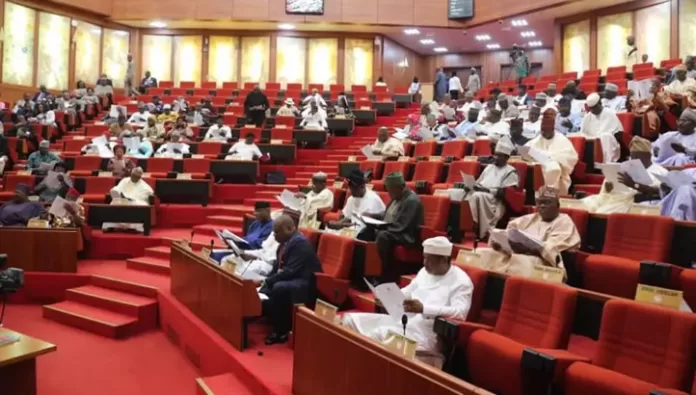The Senate has commenced a two-day public hearing on proposed tax reform bills, bringing together key stakeholders from the nation’s economic and financial sectors.
Among those in attendance are the Minister of Finance and Coordinating Minister of the Economy, Wale Edun, the Chairman of the Federal Inland Revenue Service (FIRS), Zacch Adedeji, the Group CEO of the Nigerian National Petroleum Company Limited (NNPCL), Mele Kyari, members of the Federal Executive Council, heads of relevant agencies, and the Comptroller General of Customs, Adewale Adeniyi, among others.
Chairman of the Senate Committee on Finance, Senator Sani Musa, assured that the process would be transparent and guided by national interest.
He emphasized that hearing aims to review and reform the country’s tax laws to align with current economic realities.
The reforms he stated, are designed to ensure equity, fairness, and inclusivity while eliminating inefficiencies in existing tax policies.
Senator Musa urged all stakeholders and the general public to actively participate in the discussions, emphasizing the importance of collective contributions in shaping a tax system that fosters economic growth and national prosperity.
The public hearing is on the four Tax Reform Bills, which are: the Nigeria Tax Administration Bill, the Nigeria Revenue Service (Establishment) Bill, the Joint Revenue Board Bill, and the Nigeria Tax Bill.
President Bola Ahmed Tinubu sent the four Tax Reform Bills to the National Assembly as part of his administration’s commitment to foster a more efficient and equitable tax system in the country.
The four Bills seek to repeal the Capital Gains Tax Act, Cap C1, LFN, 2004; the Casino Act, Cap. C3, LFN, 2004; the Companies Income Tax Act, Cap. C21, LFN, 2004; the Deep offshore and Inland Basin Act, Cap. D3, 2004; the Industrial Development (Income Tax Relief) Act, Cap. 117, LFN, 2004; the Income Tax (Authorised Communications) Act, Cap. 14, LFN, 2004; the Personal Income Tax Act, Cap. P8, LFN, 2004; the Petroleum Profits Tax Act, Cap. P13, 2004; the Stamp Duties Act, Cap. S8, LFN, 2004; the Value Added Tax Act, Cap. V1, LFN, 2004; the Venture Capital (Incentives) Act, Cap. V2, LFN 2004; and the VAT Modification Order 2021.
READ ALSO: NLC Urges IMF And World Bank To Stop Lending Money To Unaccountable Leaders
The Bills also seek to amend the Customs, Excise Tariffs, Etc. (Consolidation) Act Cap. 49 LFN 2004; the National Information Technology Development Agency Act, 2007; the National Lottery Act, 2005; the Nigeria Export Processing Zones Act, Cap. N107, LFN 2004; the Oil and Gas Free Trade Zone Act, Cap. 05, LFN 2004; the Petroleum Industry Act, 2021; the Tertiary Education Trust Fund (Establishment, Etc.) Act, 2011; the Companies Income Tax (Significant Economic Presence) Order 2020, and the Nigeria Start-up Act, 2022, among others.
The Chairman of the Senate Committee on Finance, Sani Musa, told reporters that the public hearing would hold on February 24 and 25.
He said the decision of the Senate to start the hearings today followed a series of consultations with stakeholders across the country to iron out areas of concerns in the Bills.
Also, House of Representatives spokesman Akintunde Rotimi announced in a statement that the public hearing would bring together government agencies, business leaders, tax experts, private sector representatives, civil society organisations (CSOs), and the general public to provide insights and recommendations into the proposed tax reforms.

